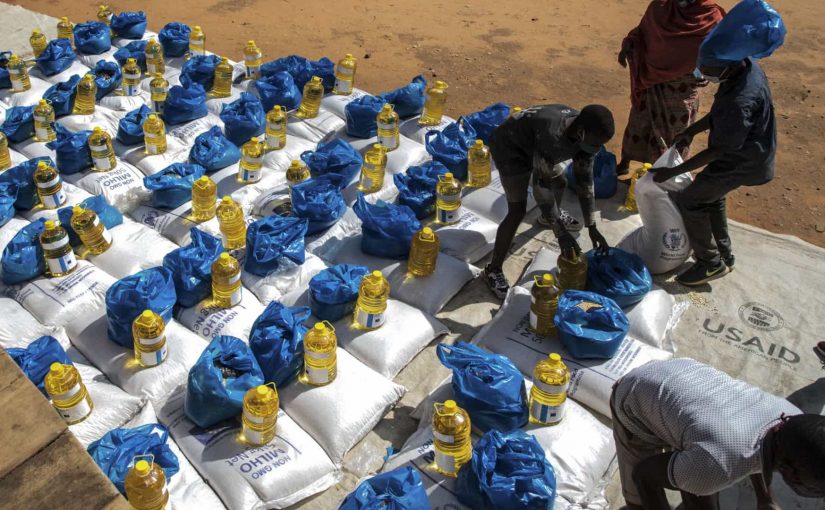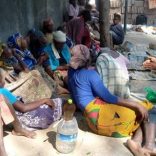Mozambique: Almost 2,100 IDPs in Niassa - UNHCR
Mozambique attacks: “If we have lunch, dinner will be difficult,” families in Pemba say

FILE - For illustration purposes only. [File photo: Lusa]
Gafuro Amade doesn’t enough food at home for when he welcomes his family in Pemba, in northern Mozambique. “I don’t have any food,” he says. “If we have lunch, dinner will be difficult” and vice versa.
His small house in Mieze, on the outskirts of the provincial capital, already has 12 inhabitants. Now, another 15 fleeing the attacks in Palma are about to arrive.
Some sleep in the backyard, under tarpaulins, he says, but that’s immaterial. All he wants to know now that his family is alive and on their way to Pemba on the boats evacuating the area.
At Cáritas headquarters there are ‘kits’ of cookies and water awaiting instructions from the authorities to be delivered to those arriving, explains Betinha Ribeiro, a member of the humanitarian organization.
According to her, the majority of the people who have arrived in Palma by boat since Sunday have been associated with the gas projects, and the general population expected to arrive after spending days without food or water will need more support.
There is enough material at the Cáritas headquarters for almost 2,000 people, Ribeiro says.
A Total oil company source told Lusa that a ferry will bring around 1,000 people who sought refuge in Afungi next to the investment precinct to Pemba, giving priority to the most vulnerable.
In the provincial capital, humanitarian organisations are mobilizing to accommodate this new wave of displaced persons.
Gafuro Amade has been going to the port of Pemba every day in search of news, and promises not to leave, as do dozens of other people who spend the day waiting there.
Francisco Jonas is another with insufficient food for the family he hopes to be reunited with – as many as 10 who have hopefully escaped from Palma.
“Eat every day? With the food I have? It depends on God,” he says, baffled by trying to organise a life without flour or rice. “I don’t have any answers, but I trust the government will organise something,” he says.
Alfan Cassamo says that Covid-19 has worsened the situation in Cabo Delgado. The pandemic is taking food off the table because “there is less employment”, still fewer opportunities in a region where they were betting everything on the gas exploitation which the Palma attack has now stalled again.
“Food becomes expensive, because you have little money, to hang on for longer,” he explains. “Enough food? I can’t guarantee that,” he says, but promises one thing: to share what he has.












Leave a Reply
Be the First to Comment!
You must be logged in to post a comment.
You must be logged in to post a comment.